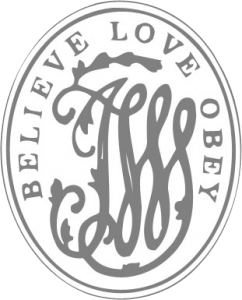Ebola and Wesley
By Steve Manskar
 Ebola is causing much suffering and anxiety across the world. More than 8000 people have been diagnosed with the virus in the West African nations of Guinea, Liberia, Nigeria, Senegal and Sierra Leone. It has killed over 3,800 people. The global community has deployed personnel and supplies to assist the affected nations in their efforts to fight the spread of the virus. President Obama recently deployed 3,000 soldiers from the US Army to assist in the struggle to contain the outbreak.
Ebola is causing much suffering and anxiety across the world. More than 8000 people have been diagnosed with the virus in the West African nations of Guinea, Liberia, Nigeria, Senegal and Sierra Leone. It has killed over 3,800 people. The global community has deployed personnel and supplies to assist the affected nations in their efforts to fight the spread of the virus. President Obama recently deployed 3,000 soldiers from the US Army to assist in the struggle to contain the outbreak.
Earlier this month Thomas Duncan travelled from his home in Liberia to Dallas. He developed Ebola symptoms shortly after his arrival and went to a hospital for help. Mr. Duncan was eventually diagnosed with the Ebola virus and admitted to the hospital where he was treated in isolation. Mr. Duncan died this week. Everyone with whom he came into contact is being monitored to see if they develop symptoms of the disease.
Media reports about Ebola and Mr. Duncan have both informed and incited much fear in the USA. While public health and medical experts have tried to inform the public about how difficult it is for Ebola to be passed from one person to another, others in the media have stoked unfounded fear and anxiety in many people.
The Wesleyan tradition gives us a Christ-shaped response to Ebola. First, John Wesley was a man of God who took science and medicine seriously. He read and studied the scientific and medical journals of his time. Wesley believed God gave us minds for thinking and solving problems. He saw science as God’s gift to humankind. It is a means to understanding how the systems of the world work, including those of the human body.
Wesley published his most popular book, A Primitive Physick, as an attempt to give regular people access to the latest medical advice for the treatment of common ailments. He wrote the book out of the conviction that Christians have an obligation to treat and heal illness. Followers of Jesus have a responsibility to alleviate physical and spiritual suffering. Healing and wholeness are an essential part of Jesus’ good news for the world. They are signs of God’s kingdom breaking into the world.
Christians in the Wesleyan tradition are people who familiarize themselves with and learn from science. Regarding Ebola, Wesleyans study the information available to them about the virus, how it is transmitted from one person to another, and what we can do to protect ourselves and others from the virus. We will not give in to irrational fear mongering.
Wesleyans will also be Christians who will work to develop a vaccine that will prevent the Ebola and medicines to treat. They will also do all in their power to help prevent the virus from spreading.
Secondly, John Wesley believed Jesus expected his followers to visit and care for the sick (see Matthew 25:36). Visiting and care for the sick is not an optional activity for people who call themselves Christian. In his sermon, “On Visiting the Sick” (#98), Wesley explains how visiting the sick is just as much a means of grace as prayer or the Lord’s Supper. He believed that both the person visited and the visitor benefit. The person visited receives relief from suffering while the visitor’s heart is opened more to Christ and his grace at work in the world. Visiting the sick is a way of growing closer to Christ. Wesley goes on to explain how to and who should visit the sick. He explains that much of visiting is asking questions and listening to the person’s needs, then doing all in your power to care for the needs. Who should visit? Everyone who claims to be a Christian needs to make time to visit. Wesley believed men and women, laity and clergy are responsible for visitation and care for the sick.
I am not saying that we all should fly off to west Africa to care for the thousands of people suffering because of the Ebola virus. But we can pray for them and for the people who are trained to provide medical treatment and to help prevent the spread of the virus. Prayer is a good beginning to fulfilling our responsibility to Christ and our west African sisters and brothers. Lift up the people who have been diagnosed with Ebola to the Great Physician. Pray for the women and men who are working to treat and comfort the sick and dying. Pray for the people working to educate their neighbors about how to protect themselves from infection. Pray for those who must collect the dead and carefully dispose of the remains. Pray for the US soldiers who will be working with the people to build clinics and caring for the sick.
In addition to prayer, you can give to support the work of United Methodist missionaries and pastors in west Africa through the work of Global Ministries and the Advance for Christ response to Ebola.
